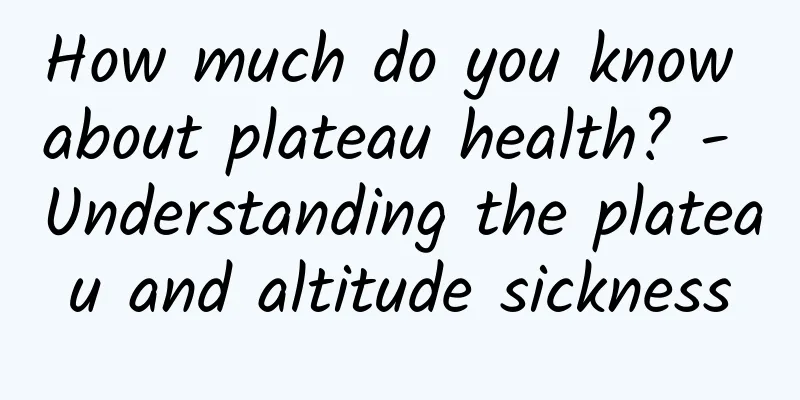The predecessor of gallbladder cancer is actually "it"! Experts say that it should be treated as soon as possible after discovery

|
Gallbladder cancer refers to a disease in which a malignant tumor invades the gallbladder. It is usually a complication of chronic cholecystitis, especially in patients with long-term gallstones. The incidence of gallbladder cancer is low, but due to its strong concealment and atypical early symptoms, most patients are already in the late stage when diagnosed. The prognosis of gallbladder cancer is extremely poor, with a 5-year survival rate of only 5%. Therefore, prevention, early diagnosis and treatment of gallbladder cancer are the key to diagnosis and treatment. In this issue of "Hui Shi Science Popularization", we invite experts from Fujian Second Medical Hospital to answer questions related to gallbladder cancer. Recently, 66-year-old Aunt Wang (pseudonym) visited the Department of Hepatobiliary Surgery of the Second Affiliated Hospital of Fujian Medical University due to dull pain in the right upper abdomen for more than a year. One year ago, she was diagnosed with gallstones after visiting the doctor for dull pain in the right upper abdomen. She got better after conservative treatment and did not undergo surgery. She has had recurrent dull pain in the right upper abdomen for many times in the past year. This time, the abdominal pain recurred, and the expert diagnosed it as "gallstones with chronic cholecystitis." After admission, magnetic resonance imaging showed multiple abnormal signals in the liver and space-occupying lesions in the gallbladder, which suggested the possibility of malignant lesions. There were also multiple enlarged lymph nodes in the abdominal cavity and retroperitoneum, which suggested metastasis. Finally, combined with the pathological results, the patient was diagnosed with gallbladder cancer with liver metastasis cT3N1M1 stage IVb. This case once again reminds us of the necessity of standardized diagnosis and treatment after we discover gallstones. 01 In what cases does gallstones require surgical treatment? (1) Symptomatic gallstones. (2) Calcification of the gallbladder wall or porcelain gallbladder. (3) Accompanied by gallbladder polyps larger than 1 cm. (4) Thickening of the gallbladder wall, also known as chronic cholecystitis. (5) There are a large number of stones and the diameter of the stones is greater than 2-3 cm. (6) Gallstones in children: In principle, surgery is not required for those who are asymptomatic. (7) The mortality rate of patients with gallstones and diabetes mellitus is more than 5 times higher if acute cholecystitis occurs. (8) Patients over 60 years old with hypertension or heart failure are more likely to have a high mortality rate if complications of gallstones occur. (9) In remote areas, medical conditions are poor and it is important to prevent complications such as acute cholecystitis or pancreatitis from happening. (Reference source: Qian Li's Abdominal Surgery) The hepatobiliary surgery department of Fujian Second Hospital carried out single-port laparoscopic cholecystectomy. The umbilical wound after surgery was only 2 cm 02 Does having the gallbladder removed have any effect on the body? Most patients with gallstones refuse surgery because they are worried that cholecystectomy will affect their lives. In fact, this worry is unnecessary. The main function of the gallbladder is to store, concentrate and excrete bile. Bile is continuously secreted by the liver, then stored in the gallbladder, and intermittently excreted with meals, entering the intestine to participate in the digestion of lipid foods. Generally, a low-fat diet is required within one month after cholecystectomy. After that, due to the compensatory expansion of the bile duct, it can replace part of the gallbladder's function, and the patient can eat normally without affecting his life. A small number of patients experience symptoms such as diarrhea due to lipid intolerance after surgery, which will be significantly improved after a period of time. 03 Why do gallstones suddenly turn into gallbladder cancer? At present, the pathogenesis of gallbladder cancer is not fully understood, and it is generally believed to be related to environmental and genetic factors. Epidemiological survey results, clinical large-sample research results and expert experience show that the occurrence of gallbladder cancer is closely related to gallstones. 04 What will your body feel if you have gallbladder cancer? Gallbladder cancer has no specific clinical symptoms and is often masked by cholecystitis, gallstones and their complications, such as abdominal discomfort, loss of appetite or weight loss. Once obvious clinical symptoms appear, they are usually in the middle or late stages and may manifest as jaundice, fever and abdominal pain. Physical examinations may reveal jaundice and a mass in the right upper abdomen. 05 Gallbladder cancer? So scary, what should I do? (1) Surgical treatment Radical resection is the only possible cure for gallbladder cancer. Patients without distant metastasis can undergo radical surgery, which is recommended to be performed in the hepatobiliary and pancreatic surgery department of a specialized hospital. (2) Palliative surgical treatment Palliative cytoreduction surgery for patients with advanced gallbladder cancer does not improve the prognosis of patients and is not recommended. Surgery and interventional treatment are limited to relieving biliary obstruction and digestive tract obstruction to improve the patient's quality of life and prolong survival. (3) Non-surgical treatment In recent years, many clinical studies have explored adjuvant chemotherapy, first-line chemotherapy, and second-line chemotherapy for gallbladder cancer, changing the current status of gallbladder cancer treatment. At the same time, molecular targeted therapy and immunotherapy for gallbladder cancer have also achieved encouraging results. In the future, chemotherapy combined with targeted therapy and immunotherapy for gallbladder cancer is expected to bring greater survival benefits to gallbladder cancer patients. (Reference source: Guidelines for the diagnosis and treatment of gallbladder cancer 2019 edition) |
<<: A brief discussion on the treatment of rhinitis and sinusitis with traditional Chinese medicine
>>: What are the symptoms of female menopause and how to deal with it?
Recommend
How to remove postpartum pregnancy spots
To remove pregnancy spots after childbirth, you n...
How to reduce fever quickly during breastfeeding
New mothers' physical condition is relatively...
What is bilateral breast thickening?
Breasts are an important symbol of the female bod...
Several major safety hazards and countermeasures in obstetrics and gynecology nursing
Nursing safety actually means that during the nur...
The efficacy and function of Kangfuyan Capsule
Kangfuyan Capsules clear away heat and reduce fir...
Livanol induction of labor
Many people may not be very familiar with Levano....
What should I pay attention to when having an abortion?
Nowadays, abortion has become more and more commo...
The effect of Anqitan on the cervix
Anqitan, also known as corpus luteum copper capsu...
When to use the belly belt_When to use the belly belt after childbirth
Postpartum women not only want to recover their b...
Pain in the right inner thigh of a woman
A woman may experience pain on the inner side of ...
What are the clinical characteristics of uterine prolapse?
Uterine prolapse usually occurs in postpartum wom...
What are the types of hot pot meatballs? How to put shrimp balls in hot pot?
There are two theories about the origin of hot po...
Symptoms of endometrial fibroids
Endometrial fibroids are relatively common in fem...









